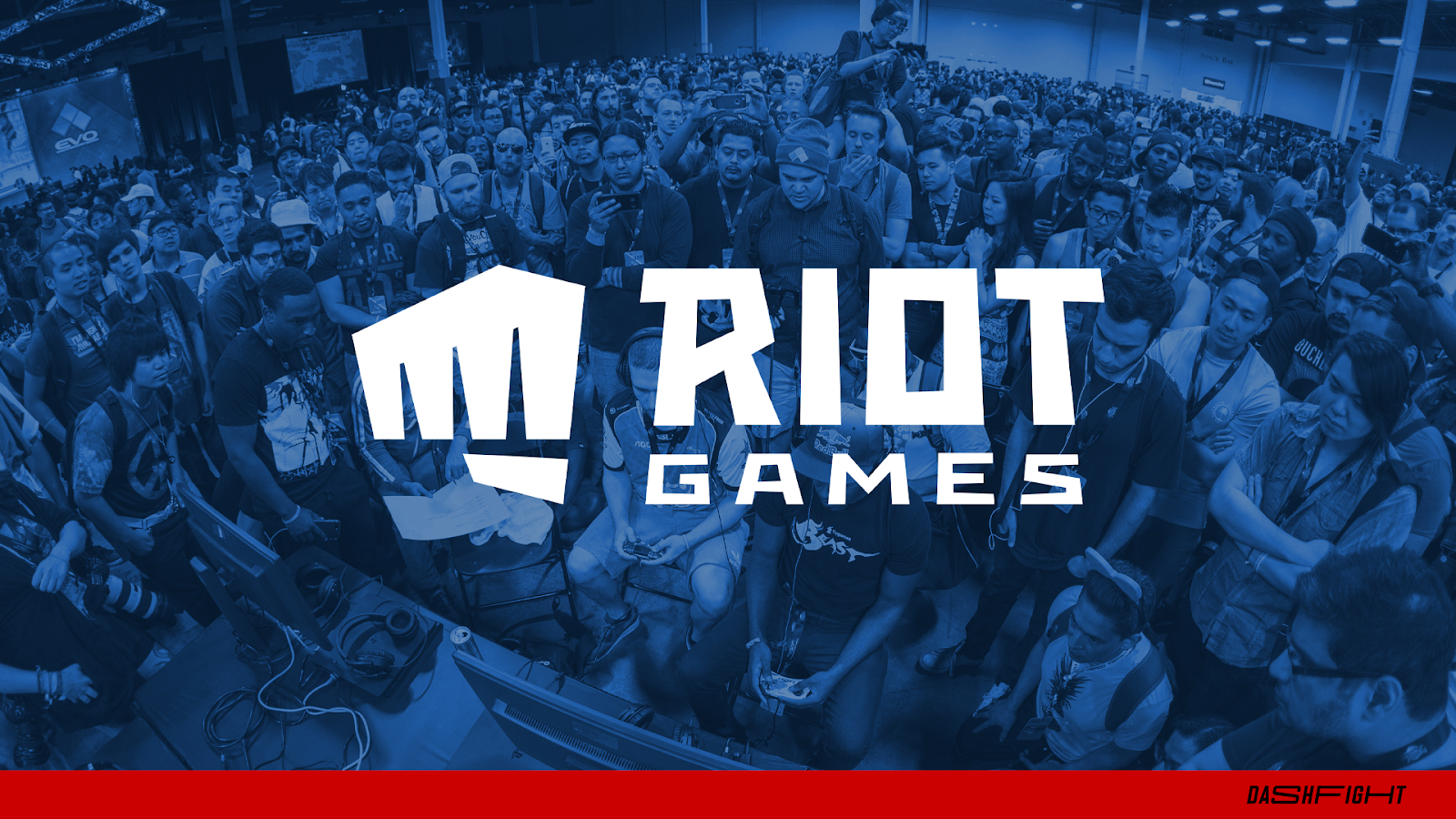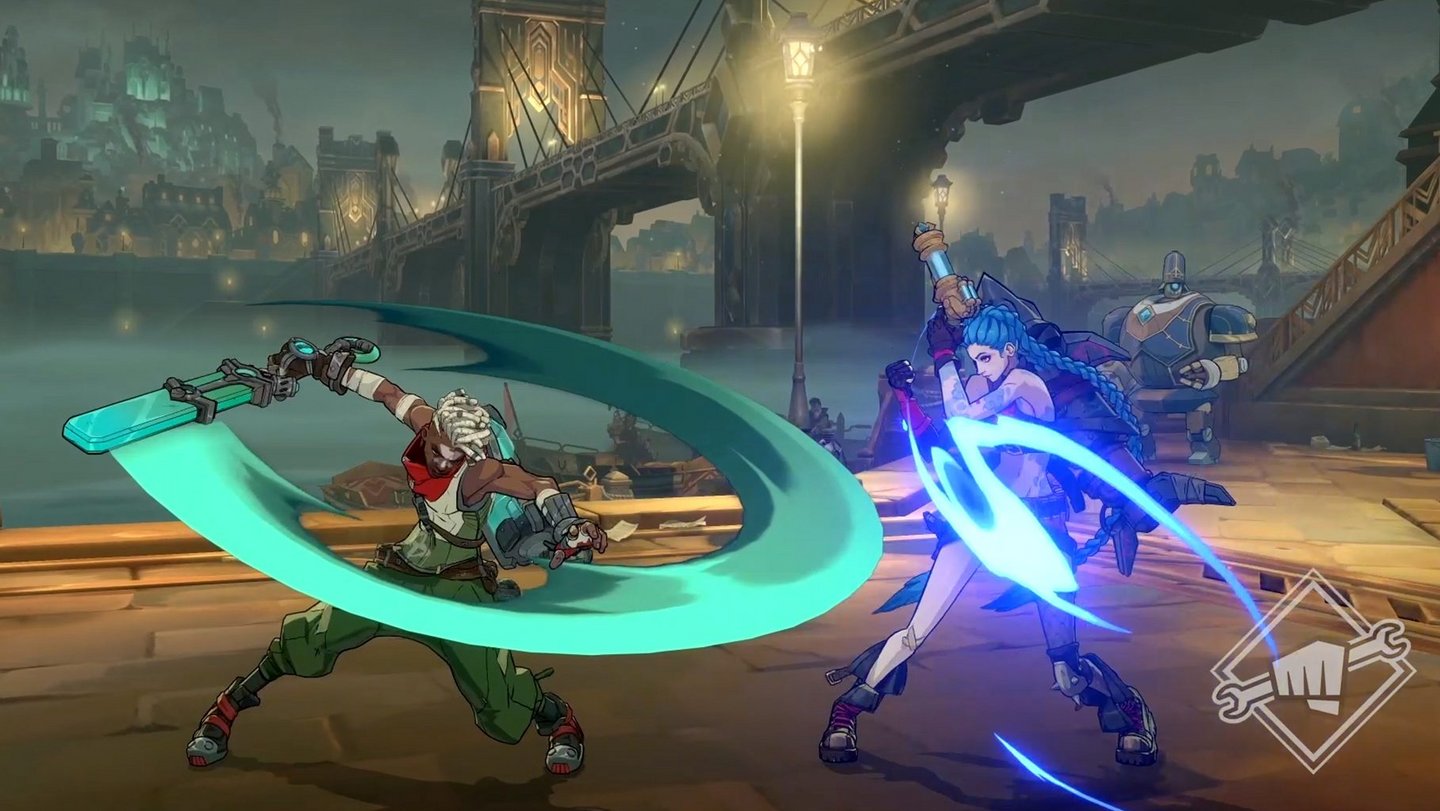DashFight’s Elizbar Ramazashvili writes for Esports Insider to discuss Riot Games’ imminent arrival to the Fighting Game Community (FGC).

The very top of the esports pyramid has been virtually unchanged for the last decade, with Valve’s Counter-Strike and Dota 2, as well as Riot Games’ League of Legends, dominating the ecosystem worldwide.
Hardly anyone who considers themselves a gamer hasn’t heard the name League of Legends. It was created by developers who previously worked on the first Dota, and that legacy is clearly traceable – it has a very similar gameplay loop, core design choices, and overall feel. Of course, the game evolved, and nowadays, it’s no longer the Dota clone it was labelled back then.
For many years, LoL was the only title in Riot Games’ portfolio — making the ‘Games’ in the company’s name somewhat ironic. This changed with the release of Teamfight Tactics, an autobattler akin to AutoChess and Dota Underlords. It was an instant hit and remains popular to this very day, with a reported 10m daily players and its own esports scene.
Then, in October of 2019, during a ten-year anniversary stream for League of Legends, Riot Games made a plethora of announcements regarding the company’s future. It most notably included the then-upcoming FPS Valorant, collectible card game Legends of Runeterra, an animated TV series Arcane, and an unnamed fighting game codenamed Project L. Of those, the first three have been released to significant success; only the latter remains to see the light of day.

The stream debuted the first footage of Project L, but the fact that Riot Games is working on a fighting game has been an open secret for a long while. In 2016, the company acquired the developer Radiant Entertainment known for Rising Thunder. The founders of this company were none other than the Cannon brothers, well-respected figures in the FGC. The pair helped launch Evo, the premier annual fighting game event, and created a software solution to provide a better online experience for fighting games. Nothing explicit was known about the project, but everyone knew something was cooking.
After the initial reveal, there was a lengthy period of essentially radio silence until December 2021, when the Cannon brothers themselves talked about the state of development, the direction the game is headed, and some expectations for the near future. After this, the whole community was kicked into overdrive, with teams already signing dedicated players for the unreleased game. Everyone is excited. The question is, why? The answer to this lies in the esports empire Riot Games has built.
It’s no secret that LoL esports has been popular ever since Riot started treating it seriously. The biggest and grandest event of the year, the League of Legends World Championship, is showing steady industry-leading numbers year after year. This could have been chalked up to an outlier if its other games weren’t also competitive in their genres. It was widely reported last year that VALORANT reached 14m active players within a year of its launch.

Moreover, two of its biggest events, VALORANT Champions 2021 and VCT 2021 Stage 2 Masters Reykjavík, showed numbers comparable to many of CS:GO’s premier tournaments and far outstripped Blizzard’s Overwatch. Legends of Runeterra (LoR) has pretty much the same story within its own genre, with its rivals failing to show the numbers LoR did, and Teamfight Tactics essentially overtook the whole genre and boasts consistently high viewers.
This is one of the reasons why people are excited – Riot Games’ projects always show up. It is a simple matter of the fact that it arguably hasn’t had a single failure yet.
Moreover, for seven fighting games DashFight covers, most of them had peak viewerships in 2021 from 40,000 to over 100,000. One notable fact about these titles is that all but one of them are far into their lifespans, and the most hyped events are in the past. People are becoming more and more unsure about the future of these older games.
Another cause for excitement is the simple fact that there isn’t much money in the FGC. There seems to be an expectation that Project L will have more money simply because it’s a Riot game — and it’s fairly reasonable to expect as much. League of Legends has steady salaries and millions of dollars in prize pools. Teamfight Tactics and Legends of Runeterra’s world championships had budgets of $200,000 each, and VALORANT events often have prize pools comparable to those of CS:GO.
However, we still don’t know what the format of Project L’s esports scene will be. Will Riot Games organise its own year-long championship akin to the Tekken World Tour or Capcom Tour? Or will it delegate the rights to hold the events to third-party organisers? Will we see Project L at premier FGC events like Evo, CEO, and Combo Breaker?
I would expect that it will be all of those things. While Riot Games loves to hold its cards close to its chest and hold its own events, it’s bound to know that the FGC does things a little differently. Simply, Riot can’t afford to skim over the grassroots part of the scene. This would cost them significant goodwill from the community and breed resentment.
What makes me confident that Riot Games won’t make this mistake are the developers of the game — the Cannons brothers. They were there at the very beginning of Evo. They know how it all works. Their savviness was further confirmed in the recent video update they did for the game that left the community in awe. It doesn’t matter how good your marketing and outreach is — if your game is terrible, people will drop it. In their reintroduction to Project L, they simply said all the right things, everything that the community wanted to hear.
Project L will be an assist-based fighter, in the same vein as the legendary Marvel vs. Capcom. Gameplay and inputs are geared to be easily picked up by anyone, but the Cannons stressed that, despite the low skill floor, this isn’t a game where newbies will stand a chance against professionals. This is the same approach that made League of Legends the global phenomenon it is today.
Good netcode is somewhat of a touchy subject in the FGC these days, with rollback — a form of lag compensation — becoming more of an expectation than a necessity. Project L creators are confident that they can provide the very best connectivity in the genre, which isn’t unfounded. First of all, they’re the creators of GGPO, a rollback software solution many games use nowadays. Furthermore, this will be bolstered by Riot’s pre-existing network infrastructure used in League of Legends and VALORANT.
Another detail – which may sound disappointing purely from a customer point of view — that won many over is Riot’s approach to creating this game: it will be out when it’s ready and not a day earlier. Ultimately, it is confident that delivering something genuinely exceptional is worth the wait.
Riot Games has all the cards in its hand. Not only is there a genuine interest in Project L from the pre-existing Fighting Games Community, but the recent groundbreaking success with the Arcane animated series will also bring in more people who want to interact with the League of Legends universe without playing the parent game. On top of this, many players from within the Riot’s game ecosystem might also try the game out simply because it’s set in the LoL universe.
Assuming Riot Games delivers a deep, competent, engaging game, all it will have to do to take the FGC by storm is not squander the esports implementation. When in Rome, do as the Romans do.
DashFight is an all-in-one fighting games hub featuring guides, news, VODs, events, and rankings for games like Tekken 7, Street Fighter V, Super Smash Bros. Ultimate, Mortal Kombat 11, Dragon Ball FighterZ, Brawlhalla, and Guilty Gear -STRIVE-.
